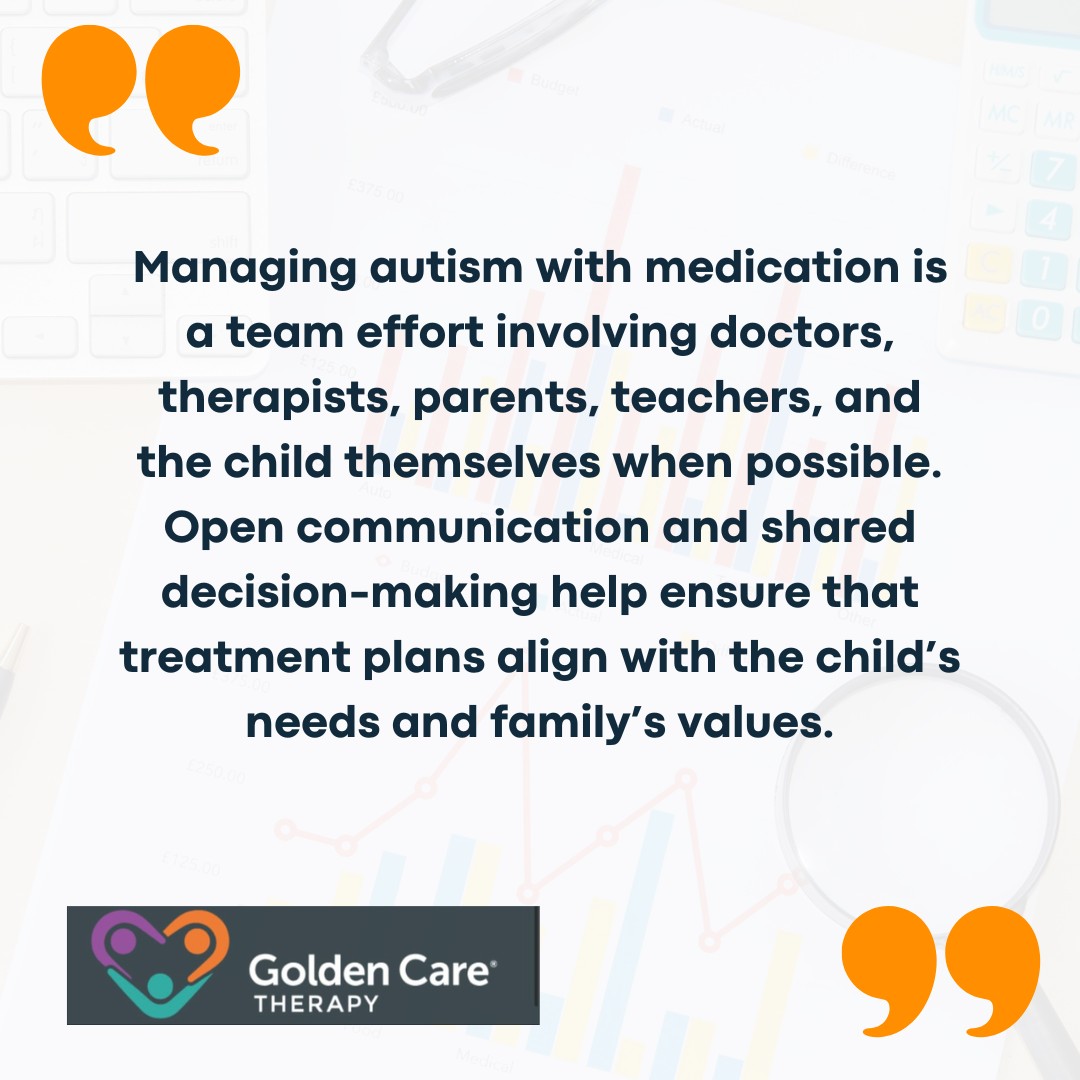Finding the right support for a child with autism can feel overwhelming, especially when it comes to understanding medical options. While there is no cure for autism, certain medications may help manage specific symptoms like anxiety, irritability, or attention difficulties.
Without further ado, let’s explore the various medicines sometimes prescribed for children with autism and how they can play a role in a broader treatment plan.
Why Medicines are Used in Autism
First, it’s important to clarify that no medicine cures autism itself. Autism is a neurodevelopmental condition with a wide range of characteristics and needs. However, many children with autism experience challenges such as anxiety, irritability, hyperactivity, sleep problems, or seizures.
Some may also have attention difficulties or aggressive behaviors. Medicines are often prescribed not to treat autism directly, but to help manage these associated symptoms to improve quality of life and enable better engagement in therapies.The decision to use medication is typically made after careful evaluation by a healthcare professional familiar with autism and its complexities. For families seeking deeper insight into sensory challenges, An Overview of Tactile Defensiveness in Children with Autism offers valuable information on how tactile sensitivities can affect behavior and well-being, helping guide more informed treatment choices.
4 Common Medicines Prescribed for Children with Autism
There are several categories of medications that doctors might consider for children with autism, depending on their individual symptoms. Here are the most common ones:
Antipsychotics
Two antipsychotic drugs are FDA-approved specifically for irritability related to autism: risperidone (Risperdal) and aripiprazole (Abilify). These medications can help reduce severe behavioral problems such as aggression, self-injury, and tantrums.
They work by influencing the brain’s dopamine and serotonin systems, which play roles in mood and behavior regulation.
While effective for some children, antipsychotics come with a risk of side effects. These can include weight gain, drowsiness, fatigue, and sometimes changes in metabolism such as increased cholesterol or blood sugar levels.
Due to this, doctors closely monitor children on these medications and weigh the benefits against potential risks.
Stimulants
Stimulant medications, commonly used for attention-deficit/hyperactivity disorder (ADHD), such as methylphenidate (Ritalin, Concerta) and amphetamine-based drugs (Adderall), may also be prescribed to autistic children who struggle with hyperactivity, impulsivity, or inattention. These medicines help improve focus and reduce restlessness.
However, autistic children can sometimes respond differently to stimulants than neurotypical children with ADHD. Side effects may include increased anxiety, irritability, or changes in appetite and sleep. Doctors usually start with a low dose and adjust carefully.
Selective Serotonin Reuptake Inhibitors (SSRIs)
SSRIs like fluoxetine (Prozac) or sertraline (Zoloft) are often used to treat anxiety, depression, or obsessive-compulsive behaviors. Anxiety is common among children with autism and can significantly affect daily functioning.
SSRIs help by increasing serotonin levels in the brain, which can improve mood and reduce repetitive behaviors.
That said, SSRIs do not work for every child, and some might experience side effects such as increased agitation, sleep disturbances, or gastrointestinal upset. Close medical supervision is essential during treatment.

Anti-Seizure Medications
Seizures and epilepsy are more common in children with autism than in the general population.
For those who have seizures, anti-seizure medications like valproic acid (Depakote), lamotrigine (Lamictal), or levetiracetam (Keppra) are used to control seizures and protect brain health. Managing seizures is crucial, as uncontrolled seizures can negatively impact cognition and behavior.
In addition to the medications mentioned above, some other drugs are sometimes used “off-label,” meaning they are not specifically approved for autism but may be prescribed to target certain symptoms.
Here are some examples:
- Alpha-2 adrenergic agonists such as guanfacine (Intuniv) or clonidine are sometimes used to manage hyperactivity, impulsivity, and sleep disorders.
- Mood stabilizers like lithium or valproic acid may be tried in cases with mood swings or severe behavioral disturbances.
- N-acetylcysteine (NAC), a supplement that influences brain glutamate systems, has shown some promise in reducing irritability and repetitive behaviors in early research, though more studies are needed.
These treatments require careful discussion between families and doctors, considering the balance of potential benefits and side effects.
What About Vitamins and Supplements?
Some families explore vitamins and dietary supplements, hoping they might improve symptoms or overall health. While some supplements like omega-3 fatty acids have been studied, results are mixed, and none are considered definitive treatments for autism symptoms.
It’s important to approach supplements cautiously because they are not regulated as strictly as medicines, and some can interact with prescribed drugs or cause unexpected side effects. Always consult with a healthcare professional before starting any supplement regimen.

Families should feel empowered to ask questions, express concerns, and seek second opinions if needed. They should also be aware that medication is just one piece of a larger support system that includes educational, social, and therapeutic interventions.
Final Thoughts
Medicines can play a helpful role in managing certain symptoms and co-occurring conditions in children with autism. The most common ones include antipsychotics for irritability, stimulants for hyperactivity, SSRIs for anxiety or obsessive behaviors, and anti-seizure drugs for epilepsy.
Sleep problems may be addressed with melatonin and occasionally other medications. Supplements are widely used but should be approached with caution.
No medication cures autism, and careful, individualized evaluation and monitoring are essential to find the right balance of benefits and risks. Medicine works best as part of a comprehensive plan that includes behavioral and educational supports tailored to each child.
Families considering medication should partner closely with knowledgeable healthcare providers to make informed decisions that best support their child’s health, development, and happiness. At Golden Care Therapy, we understand how important it is to have compassionate, individualized support throughout your child’s journey.
That’s why we offer high-quality ABA therapy in New York, New Jersey, Indiana, Georgia, and Florida by bringing experienced professionals and evidence-based strategies directly to the families who need them most. If you’re ready to take the next step, contact us today to learn how we can support your family. Let’s work together to build a brighter future for your child.
Sources:



